In 2019, the CyberSeek initiative revealed that cybersecurity jobs remained vacant for an average of 79 days, highlighting the industry's struggle to find qualified talent. Fast forward to 2022, the (ISC)2 Cybersecurity Workforce Study indicated that despite a record high of 4.7 million professionals in the global cybersecurity workforce, there was a need for an additional 3.4 million to secure digital assets effectively. This represented a significant 26% increase from the previous year's numbers, and alarmingly, nearly 70% of security leaders reported facing additional risks due to this talent shortage.
The aforementioned statistics illuminate the severity of the cybersecurity talent shortage. It is not just a theoretical issue but a tangible challenge that businesses across industries grapple with. The implications of this shortfall are far-reaching, from overworked existing staff and vulnerable to cyber threats. Therefore, dissecting this problem, understanding its roots, and exploring practical strategies for navigating this complex landscape becomes crucial.
Decoding the Prolonged Cybersecurity Talent Shortage
Understanding why this cybersecurity talent shortage has been persistent requires an exploration of its underlying causes. The answers may lie in the multifaceted reasons underlying the talent shortage in cybersecurity, with some key contributing factors including:
- Inadequate Qualification: A significant gap exists in formal education and training programs for cybersecurity, leading to a steep learning curve for aspiring professionals. A substantial number of applicants for cybersecurity roles need to gain the required skills and qualifications. This shortage in the talent pool poses a severe challenge to the industry.
- Heightened and Diverse Skill Sets Demand: The digitalization of organizations and escalating cyberattacks have led to a growing demand for cybersecurity professionals, outpacing the supply of qualified personnel as validated in (ISC)2 Cybersecurity Workforce Study. Additionally, many organizations struggle with comprehending the precise skill set required for cybersecurity roles, leading to overstated requirements that may not be essential for particular job descriptions.
- Complexity of Security Technology: Security Information and Event Management (SIEM), Intrusion Detection Systems (IDS), Intrusion Prevention Systems (IPS), Firewall Management, Endpoint Detection and Response (EDR) are complex tools, making it difficult for organizations to find candidates who can effectively use these tools, as mentioned by SANS Institute survey.
- High Employment Cost: Qualified cybersecurity professionals often demand high salaries, posing a hurdle for organizations to attract and retain talent. A number of salary surveys support this claim, highlighting that cybersecurity roles often command salaries significantly higher than the IT average.
- Shift to Remote Operations: The pandemic and post-pandemic shift to remote operations also have introduced new challenges in sourcing and retaining cybersecurity talent, such as lifted geographical restrictions, remote access to IT infrastructure, communication, and collaboration, among others, as accentuated by Global Risk Report by the World Economic Forum.
- Economic Uncertainties: The economy and financial uncertainties also make the talent acquisition and retention of talent even more challenging because professionals may be more risk-averse and hesitant to leave their current positions for new opportunities, and the company may have budget cuts, which affect the resources allocated for hiring and retaining talent, among others.
- Rapidly Evolving Threat Landscape: Cyber threats evolve as quickly as technology, requiring a high level of expertise and continuous learning - a challenging demand to meet in the existing workforce, as corroborated by the Cyber Threat Intelligence report by the SANS Institute.
Wide Scale Ripple Effect of the Talent Shortage
The cybersecurity talent shortage does not merely affect individual businesses, but it spreads across the entire industry and beyond. According to the (ISC)2 Cybersecurity Workforce Study by Frost & Sullivan, the cybersecurity workforce gap has broad implications, affecting businesses of all sizes and sectors. With the increasing digitization of companies, their vulnerability to cyber threats grows. Verizon's Data Breach Investigations report found that data breaches are increasingly common in today's digital landscape, further highlighting the importance of cybersecurity expertise.
This vulnerability is exacerbated by the lack of skilled cybersecurity personnel who can erect robust defenses and respond to threats promptly. As mentioned above, a Microsoft report indicated that a substantial proportion of security alerts go uninvestigated due to talent scarcity. Unfilled cybersecurity roles lead to existing staff being stretched thin, resulting in escalated stress levels and potential burnout. A Cybersecurity Stress Report by BlackFog found that many cybersecurity professionals are under significant stress, which can lead to burnout leading to high turnover rates. This report also found that 32% of CISOs or IT cybersecurity leaders in the UK and the US are contemplating leaving their current organizations due to low work-life balance and frustration over the skills shortage. This can lead to more security oversights and an increased likelihood of successful cyberattacks. Moreover, companies need to underline the fact that data breaches are not only becoming more frequent but also more costly.
According to the Global Risks Report by the World Economic Forum, the talent shortage could lead to delays in digital innovation. In an increasingly digitized world, companies constantly strive to adopt cutting-edge technologies to gain a competitive edge. Yet, implementing these new strategies or technologies heavily relies on the assurance of their digital assets security. Consequently, the talent shortage in cybersecurity doesn't merely affect the security aspects of organizations but also significantly impacts their capacity to innovate and evolve in the digital landscape. Therefore, companies need to ensure the security of their digital assets to implement new technologies or strategies.
Addressing the Challenge: Outsourcing as a Game Changer
Given the prevailing cybersecurity talent shortage, businesses must deploy a multifaceted strategy to alleviate its impact. According to (ISC)2 Cybersecurity Workforce Study, one critical aspect of this strategy is the augmentation of internal cybersecurity teams with outsourced expertise. Outsourcing cybersecurity operations has become increasingly essential, given the ever-evolving threat landscape, the complexity of cybersecurity tools, and the high demand for a diverse set of skills that are scarce within the industry. Thus, now it is critical for the organization to outsource its cybersecurity expertise more than ever.
Outsourcing enables organizations to access a larger talent pool with a broader range of skill sets, thereby enhancing their cybersecurity posture. Moreover, it allows businesses to tap into external expertise, gain a fresh perspective on their security operations, and acquire assistance navigating complex security tools and practices. In addition to providing immediate access to top-tier talent, outsourcing also offers flexibility. It enables organizations to scale their cybersecurity efforts in response to everchanging business needs and threat levels. Consequently, outsourcing your cybersecurity capabilities can offer enhanced security and cost-effectiveness, making it a strategic necessity in today's cybersecurity climate.
In addressing the challenge of the cybersecurity talent shortage, noteworthy outsourcing strategies appear as particularly effective, including:
- A top priority for organizations should be to procure a virtual CISO or CISO-as-a-service. This involves hiring an external expert who provides strategic guidance on cybersecurity operations. Having a virtual CISO can benefit smaller organizations or those that need more budget to afford a full-time executive since these professionals bring their extensive industry experience to the table.
- With the ubiquity of cloud technology across contemporary businesses, managed SOC - especially in the cloud - is another outsourcing approach that companies can consider. This method entails entrusting the duties of a Security Operations Center to a team of external, dedicated security analysts. With their collective industry experience, these seasoned analysts can ensure your security infrastructure remains robust and up-to-date.
- Managed threat hunting is a proactive security practice that aims to identify hidden threats that may have bypassed traditional security measures. Outsourcing the threat-hunting capability could go beyond automated alert systems to search for unusual activity within your networks that could indicate a security threat.
- Finally, outsourcing regular vulnerability assessment and penetration testing is another crucial strategy in combating the cybersecurity talent shortage. These assessments involve regular, thorough testing of systems to identify and remediate potential vulnerabilities before they can be exploited.
While each strategy offers its benefits, its effectiveness is maximized when implemented. Horangi, as a trusted cybersecurity product and services provider, delivers a comprehensive suite of cybersecurity services, including CISO-as-a-Service, cloud security assessment, managed SOC in the cloud, threat hunting, and vulnerability assessment and penetration testing services. With Horangi, you gain access to a dedicated team of cybersecurity professionals who can provide these services, helping you bridge the talent gap and ensuring your business remains secure in an increasingly digital landscape.
References:
[1] Buckbee, Michael. "Solving The Cybersecurity Skills Shortage Within Your Organization." Varonis, 24 September 2021, https://varonis.com/blog/cybersecurity-skills-shortage/. Accessed 15 May 2023.
[2] Gregory, Jennifer. "Cybersecurity Great Resignation." Security Intelligence, 3 April 2023, https://securityintelligence.com/news/cybersecurity-great-resignation/. Accessed 15 May 2023.
[3] Howard, Rick, and Julie Jeffries. "Closing the Cybersecurity Talent Gap: Key approaches to address security skilling challenges." Microsoft, 18 August 2021, https://www.microsoft.com/en-ca/industry/blog/uncategorized/2021/08/18/closing-the-cybersecurity-talent-gap-key-approaches-to-address-security-skilling-challenges/. Accessed 15 May 2023.
[4] Levin, Adam. "23 February - Cybersecurity Jobs Report: 3.5 Million Unfilled Positions In 2025." Cybercrime Magazine, 23 February 2023, https://cybersecurityventures.com/jobs/. Accessed 15 May 2023.
[5] Mickos, Marten. "The Cybersecurity Skills Gap Won't Be Solved in a Classroom." Forbes, 19 June 2019, https://www.forbes.com/sites/martenmickos/2019/06/19/the-cybersecurity-skills-gap-wont-be-solved-in-a-classroom/#7e12faa41c30. Accessed 15 May 2023.
[6] Muncaster, Phil. "Cybersecurity Skills Shortage Tops Four Million." Infosecurity Magazine, 7 November 2019, https://www.infosecurity-magazine.com/news/cybersecurity-skills-shortage-tops/. Accessed 15 May 2023.
[7] Oltsik, Jon, and Bill Lundell. "The Life and Times of Cybersecurity Professionals 2021 Volume V." Enterprise Strategy Group, https://www.esg-global.com/hubfs/ESG-ISSA-Research-Report-Life-of-Cybersecurity-Professionals-Jul-2021.pdf. Accessed 15 May 2023.
[8] Poremba, Sue. "The cybersecurity talent shortage: The outlook for 2023." Cybersecurity Dive, 5 January 2023, https://www.cybersecuritydive.com/news/cybersecurity-talent-gap-worker-shortage/639724/. Accessed 15 May 2023.
[9] Price, Dillon. "Your Guide to Cybersecurity Careers." Monster Jobs, https://www.monster.com/career-advice/article/cybersecurity-suffers-from-talent-shortage. Accessed 15 May 2023.
[10] "Cybersecurity: Close the skills gap to improve resilience." The World Economic Forum, 1 February 2023, https://www.weforum.org/agenda/2023/02/cybersecurity-how-to-improve-resilience-and-support-a-workforce-in-transition/. Accessed 15 May 2023.
[11] "How reskilling and upskilling talent can help shrink the cybersecurity skills gap." The World Economic Forum, 26 April 2023, https://www.weforum.org/agenda/2023/04/how-reskilling-and-upskilling-talent-shrink-cybersecurity-skills-gap/. Accessed 15 May 2023.
[12] "Why the Cybersecurity Skills Shortage is a Real Nightmare." Security Boulevard, 15 October 2019, https://securityboulevard.com/2019/10/why-the-cybersecurity-skills-shortage-is-a-real-nightmare/. Accessed 15 May 2023.




